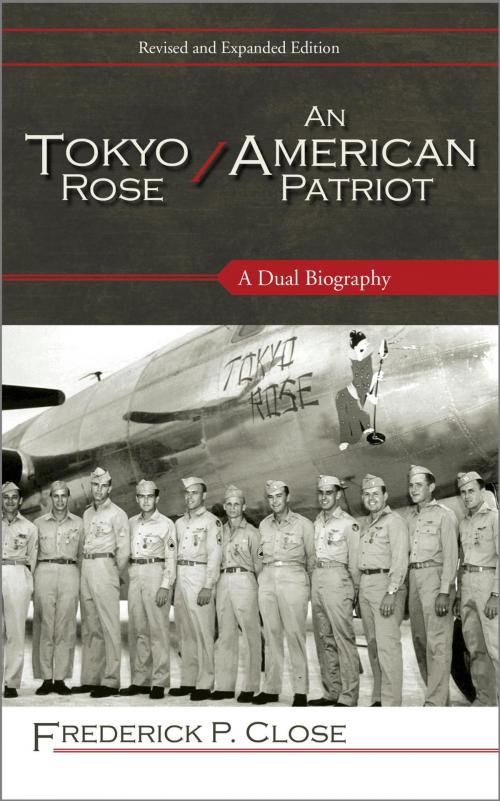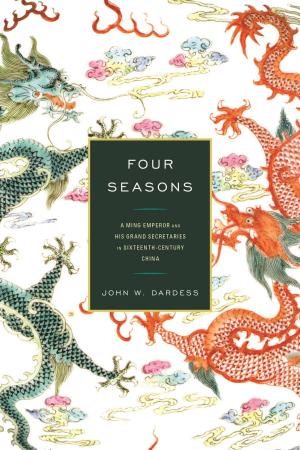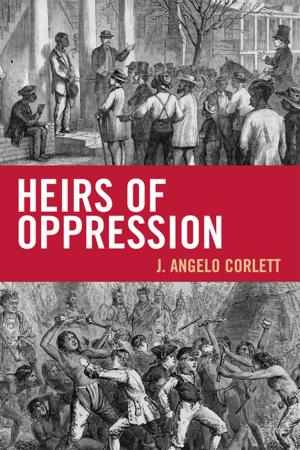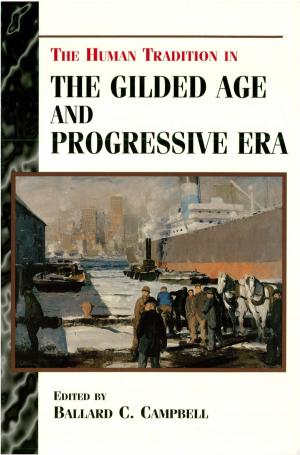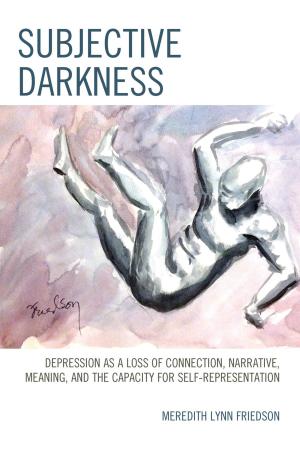Tokyo Rose / An American Patriot
A Dual Biography
Nonfiction, History, Modern, 20th Century, Americas, United States, Military, World War II| Author: | Frederick P. Close | ISBN: | 9781442232068 |
| Publisher: | Rowman & Littlefield Publishers | Publication: | May 29, 2014 |
| Imprint: | Rowman & Littlefield Publishers | Language: | English |
| Author: | Frederick P. Close |
| ISBN: | 9781442232068 |
| Publisher: | Rowman & Littlefield Publishers |
| Publication: | May 29, 2014 |
| Imprint: | Rowman & Littlefield Publishers |
| Language: | English |
Tokyo Rose / An American Patriot explores the parallel lives of World War II legend Tokyo Rose and a Japanese American woman named Iva Toguri. Trapped in Tokyo during the war and forced to broadcast on Japanese radio, Toguri nonetheless refused to renounce her U.S. citizenship and surreptitiously aided Allied POWs. Despite these patriotic actions, she foolishly identified herself to the press after the war as Tokyo Rose.
This book assembles for the first time a collection of images from American pre-war popular culture that provided impetus for the legend. It explains how the wartime situation of servicemen caused their imaginations to create the mythical femme fatale even though no Japanese announcer ever used the name Tokyo Rose. Further, in spite of the fact that there was only one rather innocuous broadcast by a woman between December 1941 and April 1942, a news correspondent with the U.S. Navy reported in April 1942 that sailors in the Pacific theater routinely listened to Tokyo Rose's propaganda.
Using interviews conducted over decades, this biography also explores Toguri's character and decisions by placing her story and conviction for treason in the context of U.S. and Japanese racial views, Imperial Japan, and Cold War politics. New research findings prompt a different perspective on her sensational trial, the most expensive in U.S. history up to that time. Misguided strategy by Toguri's defense attorney and her deceptive testimony about a key event led to the jury's verdict as surely as the perjury suborned by prosecutors.
In addition to updated information, this expanded edition discusses Manila Rose, another Japanese broadcaster who lived in San Francisco in 1949 a few blocks from the courthouse where the federal government prosecuted Tokyo Rose. The U.S. Army misstated Manila Rose’s name to the public when it interviewed her in 1945. As a result historians have never turned up her files because they researched this incorrect name. Close discovered the FBI investigation from 1954 in the National Archives and is the first here to reveal the full story of Manila Rose, a woman whose real life parallels that of the fictional Tokyo Rose.
Tokyo Rose / An American Patriot explores the parallel lives of World War II legend Tokyo Rose and a Japanese American woman named Iva Toguri. Trapped in Tokyo during the war and forced to broadcast on Japanese radio, Toguri nonetheless refused to renounce her U.S. citizenship and surreptitiously aided Allied POWs. Despite these patriotic actions, she foolishly identified herself to the press after the war as Tokyo Rose.
This book assembles for the first time a collection of images from American pre-war popular culture that provided impetus for the legend. It explains how the wartime situation of servicemen caused their imaginations to create the mythical femme fatale even though no Japanese announcer ever used the name Tokyo Rose. Further, in spite of the fact that there was only one rather innocuous broadcast by a woman between December 1941 and April 1942, a news correspondent with the U.S. Navy reported in April 1942 that sailors in the Pacific theater routinely listened to Tokyo Rose's propaganda.
Using interviews conducted over decades, this biography also explores Toguri's character and decisions by placing her story and conviction for treason in the context of U.S. and Japanese racial views, Imperial Japan, and Cold War politics. New research findings prompt a different perspective on her sensational trial, the most expensive in U.S. history up to that time. Misguided strategy by Toguri's defense attorney and her deceptive testimony about a key event led to the jury's verdict as surely as the perjury suborned by prosecutors.
In addition to updated information, this expanded edition discusses Manila Rose, another Japanese broadcaster who lived in San Francisco in 1949 a few blocks from the courthouse where the federal government prosecuted Tokyo Rose. The U.S. Army misstated Manila Rose’s name to the public when it interviewed her in 1945. As a result historians have never turned up her files because they researched this incorrect name. Close discovered the FBI investigation from 1954 in the National Archives and is the first here to reveal the full story of Manila Rose, a woman whose real life parallels that of the fictional Tokyo Rose.
